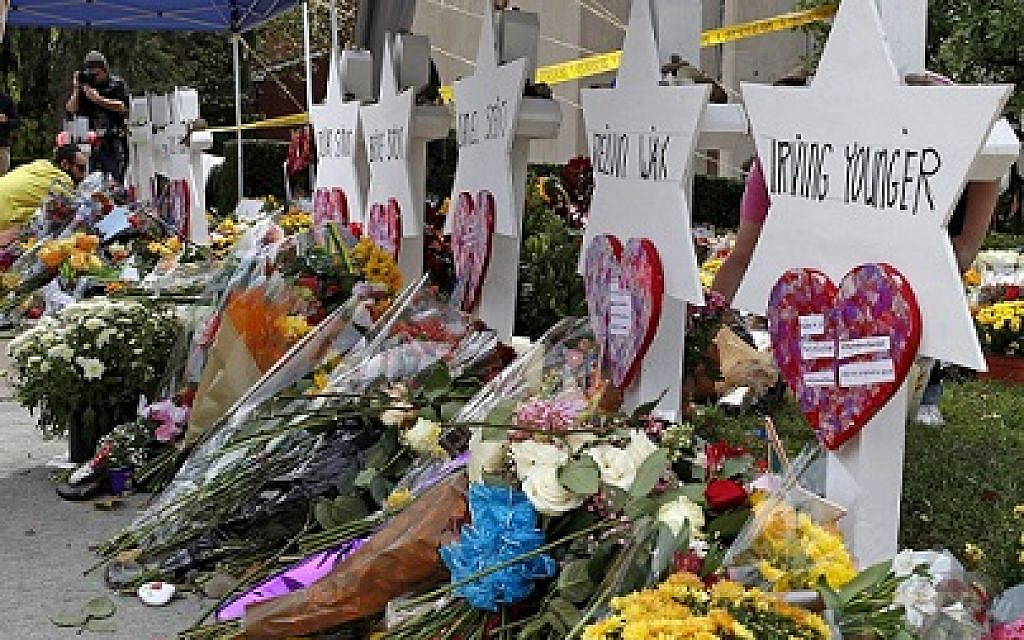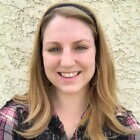OPINION: I thought antisemitism was a problem of the past – then I became Jewish
Convert to Judaism, Kylie Ora Lobell, says she no longer feels safe in America anymore, but her family don’t quite understand

It wasn’t until I started converting to Judaism that I realised that antisemitism is very much alive and well — and it’s only getting worse.
Last year saw the most antisemitic incidents in 40 years, according to the Anti-Defamation League. While the numbers aren’t yet in for 2020, there have been antisemitic events every month of the year so far.
And yet, when I talk to my family about antisemitism and why I don’t feel safe here in America anymore, they don’t quite understand.
Get The Jewish News Daily Edition by email and never miss our top stories Free Sign Up
I don’t expect them to, either. If you have never been discriminated against for your identity, then you simply can’t comprehend how it could happen to others, either. You don’t know how scary and powerless you feel when people say they hate you.
Growing up in a white home in a predominantly white neighbourhood in Baltimore, I never once faced racism or any form of discrimination. My family and I pretty much looked like everyone else. We could blend in and there were no differences between the people in our community and us.
On the other hand, in high school, when my mum moved us to Pikesville, a predominantly Orthodox Jewish neighbourhood, I noticed that they looked different from us right away. Mostly, I’d see them on Saturdays, wearing all black and pushing baby strollers. The only thoughts that crossed my mind were, “Wow, Jewish people walk a lot,” and “They must be really hot in that dark clothing.”
Unlike my mum and I, they couldn’t hide who they were.
Today, I’m one of those Jews walking on Shabbat around my neighbourhood, which is a little frightening nowadays. But the few times when I have experienced real antisemitism, ironically, have occurred when I wasn’t easily identifiable as an Orthodox Jew. Like the time my landlord told me her father used to “Jew people down,” or when my Uber driver said Jews control the world and like to make little children into matzoh ball soup (really!). The topic came up because we were driving through a predominantly Orthodox Jewish neighbourhood in Los Angeles and he spotted some Charedim.
The first incident was offensive, and the latter was horrifying. I shared these stories online and with my family, because the only way non-Jews can slightly understand what is going on is if we tell our stories and show them our lived reality.
It took me a while to get to this place, though. I didn’t want to comment on antisemitism because I didn’t want to seem like I was being dramatic. One thing that antisemites say online is that antisemitism doesn’t actually exist, and Jews make it up or are exaggerating it.
I gave into that for a little bit, sadly because I didn’t want to face harassment online. But we must speak up.
This summer, I witnessed #JewishPrivilege shift from an antisemitic hashtag on Twitter to one where Jews were sharing their antisemitic trauma. I shared the landlord and Uber stories, and also posted, “#JewishPrivilege is when a Hollywood agent yelled at my husband, a comedian, for taking off Jewish holidays because ‘You can’t do that in this business!’” and “#JewishPrivilege is having to hire an armed guard for our synagogue because Jews were massacred in Pittsburgh and Poway.”
I received more engagement than I’ve ever achieved on the platform. One person told me “F— Israel” and another called me a “heathen” for converting. But overall, I found massive support from non-Jews and Jews alike, with many retweeting me and agreeing with what I had said. It empowered me to keep tweeting about antisemitism.
We must continue to speak up, show our vulnerability and humanity and help the non-Jewish community understand. Black Lives Matter is very effective at showing people outside of the Black community their pain and trauma and has gained a huge following, with people of all different races and backgrounds supporting them.
There’s no reason that antisemitism and its effects shouldn’t be understood and rejected just as firmly as racism.
Unfortunately, a lot of non-Jews think that antisemitism is a thing of the past that died with the Holocaust and society has advanced since then. I certainly did before I converted. But when talking about antisemitism in the classroom, it has to go way beyond the Holocaust so people can very much realise it’s alive and well today.
Recently, a teenager asked my husband to take off his hat so he could see if he had horns. Maybe if that teen had gotten a better education on antisemitism, he would have thought twice before saying that.
When I talk to my family about how America is quickly becoming like Europe before the Holocaust and how I want to move to Israel one day, they say “Really?” and find it hard to believe.
“Why would you move so far away?” they ask. I tell them I want to survive. I send them news articles to back up my claims. I hope they’re beginning to understand. I hope they see that Pittsburgh and Poway were not isolated incidents but indicative of a bigger issue going on.
It may seem dramatic, but I’m OK with being dramatic now. I’m not going to apologise for bringing up the trauma I’ve experienced. That’s not my job. I’m done with feeling powerless.
If our collective chorus gets louder and louder, and we tell our non-Jewish friends and family about antisemitism, they may just start to understand — and become valuable allies in the process.

Thank you for helping to make Jewish News the leading source of news and opinion for the UK Jewish community. Today we're asking for your invaluable help to continue putting our community first in everything we do.
For as little as £5 a month you can help sustain the vital work we do in celebrating and standing up for Jewish life in Britain.
Jewish News holds our community together and keeps us connected. Like a synagogue, it’s where people turn to feel part of something bigger. It also proudly shows the rest of Britain the vibrancy and rich culture of modern Jewish life.
You can make a quick and easy one-off or monthly contribution of £5, £10, £20 or any other sum you’re comfortable with.
100% of your donation will help us continue celebrating our community, in all its dynamic diversity...
Engaging
Being a community platform means so much more than producing a newspaper and website. One of our proudest roles is media partnering with our invaluable charities to amplify the outstanding work they do to help us all.
Celebrating
There’s no shortage of oys in the world but Jewish News takes every opportunity to celebrate the joys too, through projects like Night of Heroes, 40 Under 40 and other compelling countdowns that make the community kvell with pride.
Pioneering
In the first collaboration between media outlets from different faiths, Jewish News worked with British Muslim TV and Church Times to produce a list of young activists leading the way on interfaith understanding.
Campaigning
Royal Mail issued a stamp honouring Holocaust hero Sir Nicholas Winton after a Jewish News campaign attracted more than 100,000 backers. Jewish Newsalso produces special editions of the paper highlighting pressing issues including mental health and Holocaust remembrance.
Easy access
In an age when news is readily accessible, Jewish News provides high-quality content free online and offline, removing any financial barriers to connecting people.
Voice of our community to wider society
The Jewish News team regularly appears on TV, radio and on the pages of the national press to comment on stories about the Jewish community. Easy access to the paper on the streets of London also means Jewish News provides an invaluable window into the community for the country at large.
We hope you agree all this is worth preserving.
-
By Brigit Grant
-
By Laurent Vaughan - Senior Associate (Bishop & Sewell Solicitors)
-
By Laurent Vaughan - Senior Associate (Bishop & Sewell Solicitors)
-
By Laurent Vaughan - Senior Associate (Bishop & Sewell Solicitors)
-
By Laurent Vaughan - Senior Associate (Bishop & Sewell Solicitors)






















